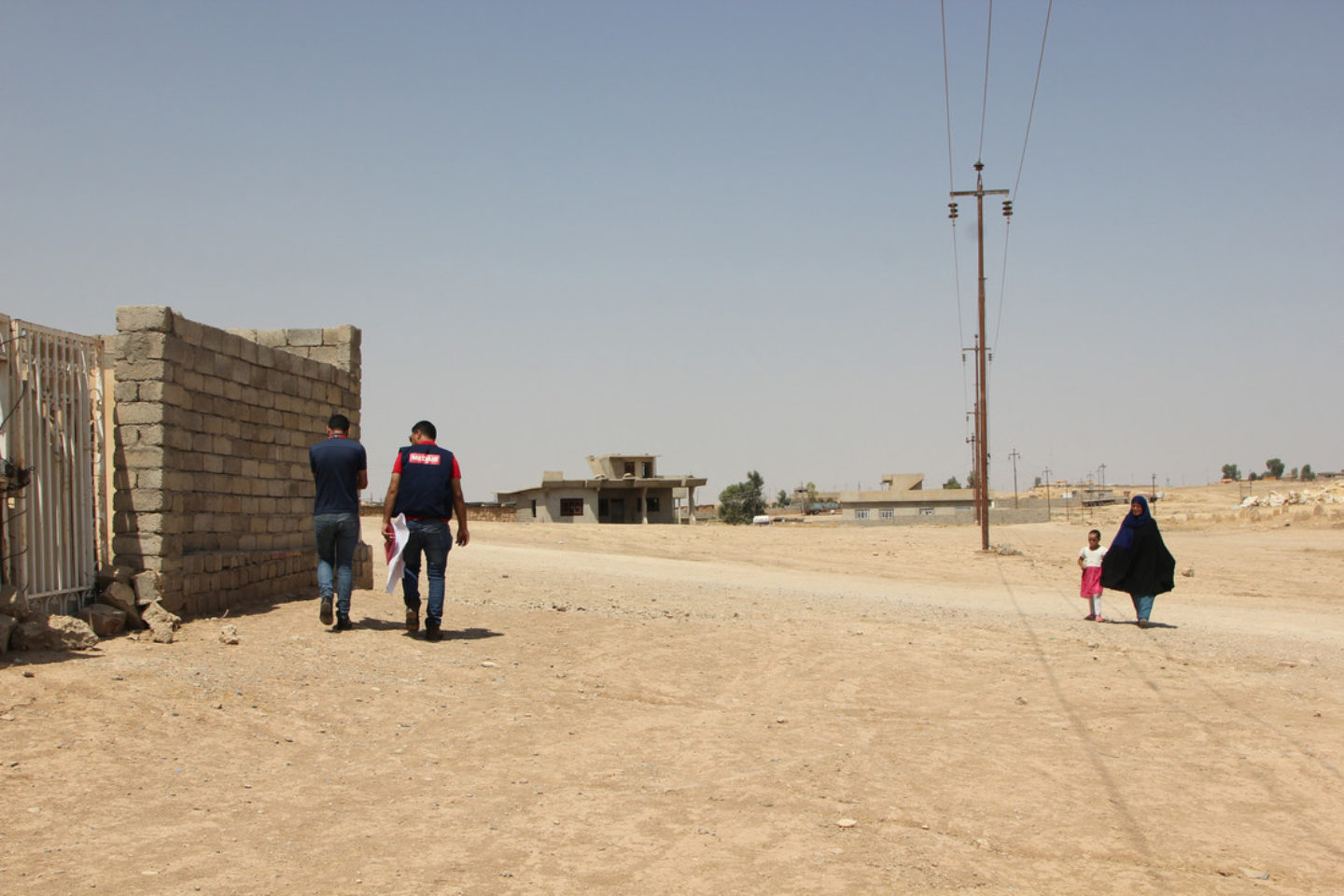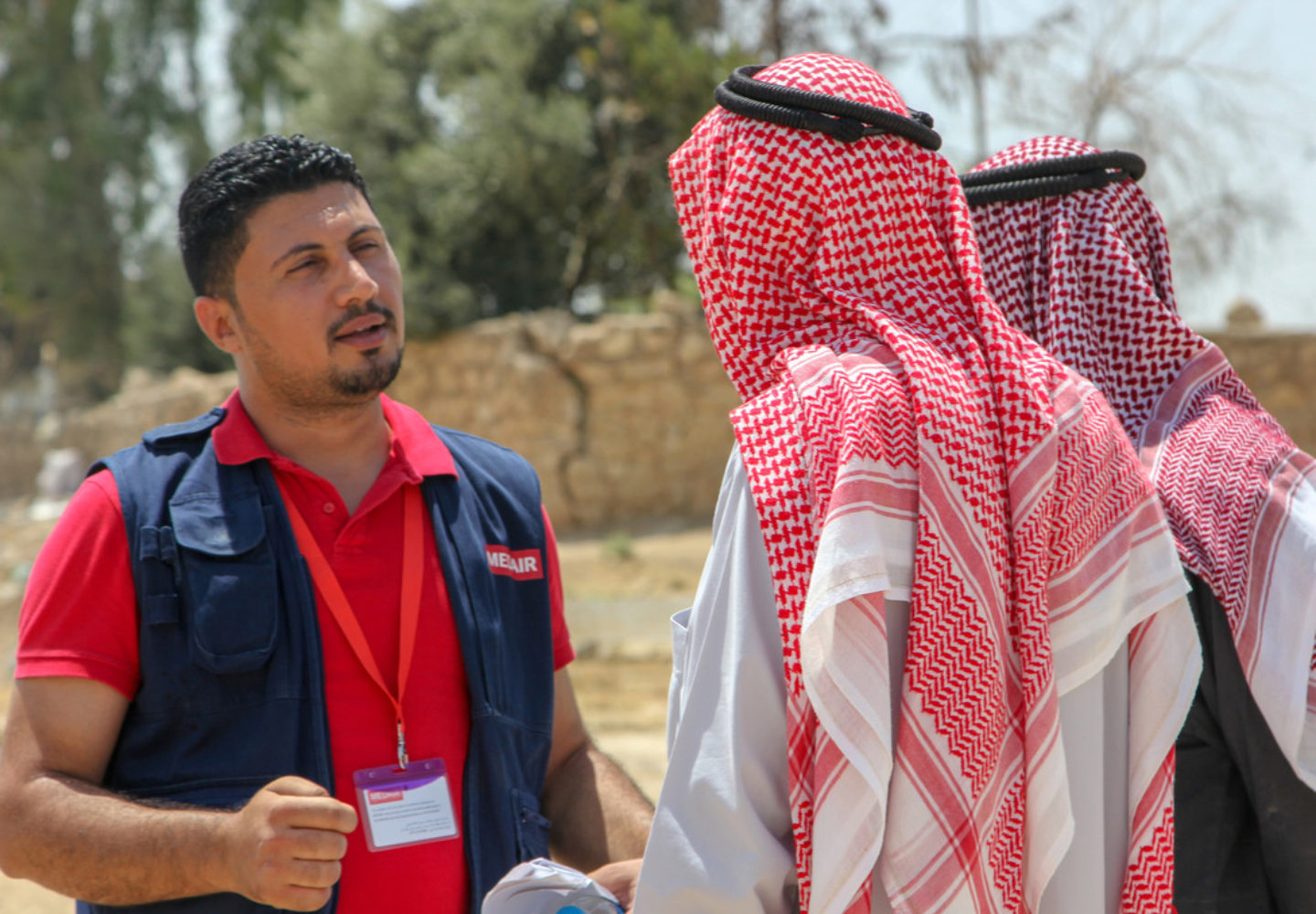Stories from
Iraq: No Shame in Sharing
The sun climbs high in the sky over a village in northern Iraq on a day when Medair’s mobile health clinic has arrived and is in full swing. Families are coming in to see doctors about respiratory problems, hypertension, and minor injuries. Nurses are conducting triage, pharmacists are dispensing medications.
Not long ago, this community was held by armed groups, but now people are returning to rebuild their lives.

A group of 14 men gather for the third weekly meeting of the psychosocial support group offered by Medair.
Jamal, Medair Psychosocial Support Officer, talks to the group about dealing with loss and how they all can help each other. The men are young and old alike—the oldest is 90. Together they share their experiences and offer suggestions of how to cope with losing a family member or losing their livelihoods or financial assets.
Ahmed talks about how he coped when he lost his wife, which happened before the crisis. “All of my friends were with me at that time,” he says. “People were always with me in the evenings and it really helped me.”
Raqqan is the “mukhtar”, or community leader. He attends the group and says it is a real benefit for the men. “This is so good for us to get together and talk about what is in our hearts,” says Raqqan. “We talk about our losses and share our feelings together. It helps us come together as a community.”

Jamal speaks with two men in the Iraqi village.
Jamal is from a similar area in Iraq, which he says helps him with facilitating the groups. “I want to deal with them in their own culture,” he says. “I want them to be comfortable speaking with me. Each week they are talking more and sharing their experiences. The idea is that after six weekly sessions these people will have information they can share with others, and they will have skills to deal with sadness or stress. I find that often people don’t know how to deal with their sadness. I want to help them with that.”
As the session ends, the men leave in small groups of two or three. Some hang back to speak privately with Jamal. “There is a great need for this in Iraq,” says Jamal. “There is a stigma to mental health treatment and only a few psychologists. This kind of work is new. We need time and we need to be consistent to bring it to the culture—to teach people that there is no shame in talking about their feelings.”
Read more about the impact of psychosocial support in Iraq
Your gifts bring much-needed healing to people recovering from crisis in Iraq. Thank you!
In Iraq, Medair provides vulnerable people with shelter, health care, psychosocial support, safe drinking water, latrines, and hygiene. Medair’s work in Iraq is supported by the US Agency for International Development (USAID), EU Civil Protection and Humanitarian Aid, and generous private donors.
This content was produced with resources gathered by Medair field and headquarters staff. The views expressed herein are those solely of Medair and should not be taken, in any way, to reflect the official opinion of any other organisation.
